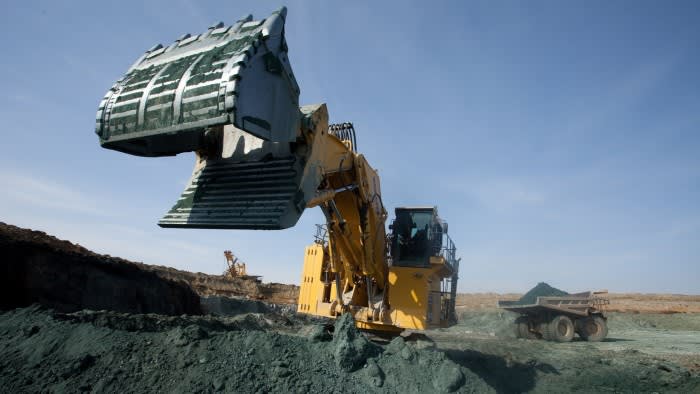Stay informed with free updates
Simply sign up to the Russian business & finance myFT Digest — delivered directly to your inbox.
Polymetal, the Kazakh gold producer that recently sold its Russian operations, continues to be haunted by its past in dealings with banks and suppliers, as it seeks to rebuild the business and relist in London in two years.
The former FTSE 100 gold producer has been forced to turn to Chinese suppliers for crucial equipment after western companies refused and to explore alternative financing routes as European lenders, including Société Générale and Raiffeisen, want to cut ties once debts have been repaid.
Polymetal became a rare example of a company to successfully manoeuvre between western sanctions and Kremlin rules on asset sales after divesting eight Russian gold and silver mines for $3.7bn in February to Russian rival Mangazeya Mining, streamlining the group to two Kazakh mines.
The group, which will be rebranded as Solidcore Resources to reduce red flags triggered by the Polymetal name in compliance checks, plans to embark on building its own processing site in Kazakhstan for $800mn and an M&A spree to return to the London market by 2026. The group delisted in 2023 when it redomiciled to Kazakhstan as part of a restructuring following Russia’s full-scale invasion of Ukraine.
In an interview with the Financial Times, chief executive Vitaly Nesis painted a picture of a business under siege from its past and present association with Russia, as it faces investor unrest over a policy of no dividends until the processing facility is built in 2028, despite $233mn of net cash.
“Despite a huge cash pile, we find ourselves in a very precarious position. We need to build an expansive and complex facility without access to external financing and with the key source of profitability under the constant sanctions-related threat,” he said. “The picture is not rosy at all.”
“The whole region is now tainted by what has happened and the geopolitical shadow will be there in two or five years,” he added.
Being forced to use Chinese suppliers when building this facility because of refusals by equipment providers in the UK, Germany and France “creates an added level of inconvenience”, Nesis said.
“The industrial reality is we can buy everything in China but we wanted to use the equipment that is already familiar to us,” he added.
Polymetal continues to send material mined in Kazakhstan to the Amursk processing site in Russia that was sold to Mangazeya. It risks a substantial erosion in profitability if it loses access to that processing route and is made to send its unconventional resources, which need to be handled with highly specialised equipment, to China instead.
The US Treasury has sanctioned the Russian assets that Polymetal sold but has provided assurances that the Kazakh entity may still send its material to the Amursk site for processing, subject to certain conditions.
The Astana-based group has $400mn of debts due in the next 24 months to its lenders, led by Raiffeisen, Société Générale and the European Bank for Reconstruction and Development.
Nesis said European banks were keen to cut ties once they get their money back, despite Polymetal complying with all sanctions.
“These banks tolerate the existing facilities as long as we are clear in terms of sanctions compliance. Those banks have next to nil appetite to continue these relationships,” he said. “As we retire those facilities, we have a very tall order of establishing relationships with other banks . . . most likely those will be American banks.”
SocGen and Raiffeisen declined to comment.
The company is also exploring options to tap into funding from the EBRD and renminbi-denominated Panda bonds issued by foreign sellers.
Nesis ruled out an immediate return to London as a “lame duck”. He argued the business needed a market capitalisation of at least $4bn and to be on track to double output to 1mn ounces annually within five years to be meaningful for western investors.
He warned, however, that Central Asian gold miners would never have the same allure after investors suffered huge losses on London-listed Russian gold producers such as Petropavlovsk and Polyus.


